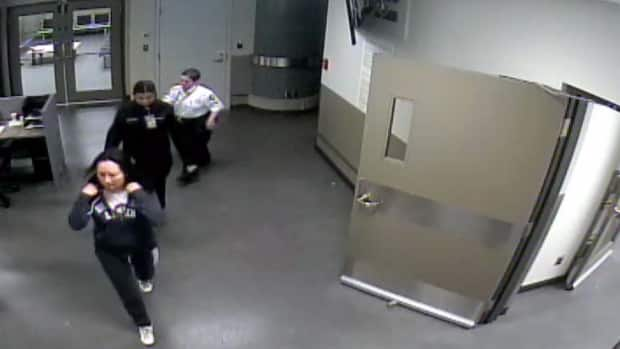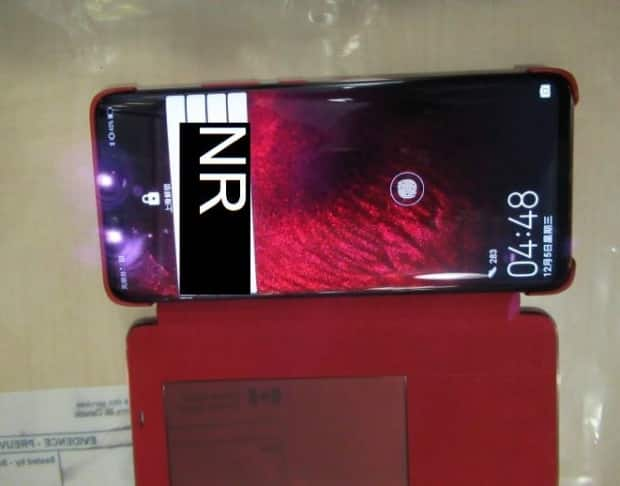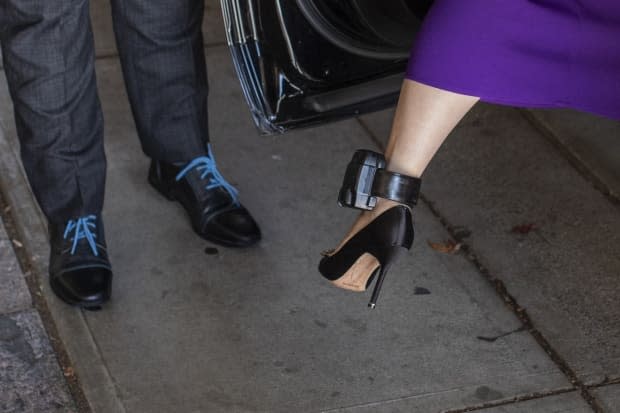RCMP and CBSA officers to face questions over Meng Wanzhou's arrest in extradition case
The RCMP and Canada Border Services Agency officers who detained Meng Wanzhou at Vancouver's airport in December 2018 will speak publicly for the first time this week about the events surrounding the Huawei executive's arrest for extradition to the United States.
In a highly anticipated B.C. Supreme Court hearing, Meng's lawyers will have a chance to grill police and customs agents about what the defence claims was a plan orchestrated by U.S. authorities to covertly gather evidence against Meng in violation of her rights.
Michael Byers, a professor at the University of British Columbia and Canada Research Chair in global politics and international law, said testimony about the CBSA's decision to question Meng without a lawyer could be a "game-changer."
"Meng was in Canada. She had charter rights at the point of her arrival and during the interrogation, and she provided information and made decisions that might have been different had she known why she was being interrogated," Byers said.
"This is the one legal foothold that Ms. Meng's lawyers have that could turn this case around."
Accused of violating U.S. sanctions
Meng's defence team hopes to gather evidence this week to use at a hearing next year to bolster an argument that the high-profile extradition case should be tossed out.
Meng is Huawei's chief financial officer and the daughter of the telecommunication giant's billionaire founder, Ren Zhengfei. She was arrested on a U.S. extradition warrant on Dec. 1, 2018, after landing in Vancouver on a flight from Hong Kong.

The 48-year-old faces fraud and conspiracy charges related to allegations that she lied to an HSBC executive about Huawei's relationship with a subsidiary that was accused of violating U.S. economic sanctions against Iran.
Prosecutors argue that by relying on Meng's alleged lies to continue financing Huawei, HSBC placed itself at risk of loss and prosecution for breaching the same set of sanctions.
This week's testimony is expected to focus on the hours leading up to Meng's initial detention and questioning by CBSA officers and her arrest nearly three hours later by the RCMP.
'The subject appeared confused'
Previous hearings have established that the RCMP initially planned to board Meng's Cathay Pacific flight once it pulled up to the gate. But the CBSA pulled her aside for questioning instead — despite a warrant that called for Meng's "immediate arrest."
CBSA officers seized Meng's electronic devices and placed them in bags provided by the U.S. Federal Bureau of Investigation. They also asked Meng for the passcodes, which they then passed on to the RCMP — allegedly by mistake, a fact that only emerged in court.

The defence claims the FBI wanted the CBSA to use the agency's extraordinary powers to question Meng without a lawyer.
In a declaration contained in court documents filed last year, CBSA acting Supt. Sanjit Dhillon described the interaction he had with Meng as she stood with her bags, wearing a tracksuit, unaware that she was about to embark on a legal odyssey that has lasted nearly two years.
"The subject was then asked if her country sold products in countries that they should not. The subject appeared confused by the question," Dhillon wrote.
"I rephrased the question, and asked if her company sold products or did business in Iran."
Sharing of information in dispute
Another key area of testimony is likely to centre around a request from the FBI's legal attaché for the electronic serial number information attached to Meng's devices.
According to documents previously filed with the court, the request was made three days after Meng's arrest, and records show that the RCMP accessed her phones, tablet and laptop on the same day to record SIM card numbers and other technical information.

The defence argues that sending those details to the FBI would violate Canada's Extradition Act, as U.S. investigators could use them to extract information for Meng's prosecution.
The Crown says the RCMP didn't share the information, but in notes recorded a week after the initial request, one of the officers involved, Sgt. Janice Vander Graaf, wrote that a colleague, Const. Gurvinder Dhaliwal, told her their superior had given the FBI what it wanted.
Meng's lawyers said the discrepancy raised more questions than it answered. They also accused the officers of providing "boilerplate" denials of wrongdoing.
"The officers' denials should be viewed with suspicion," the defence team wrote in an application for more disclosure last year.
"This suspicion is only heightened by their collective inability to recall anything specific about emails, actions or conversations that tend to support [Meng's] claims. When they do remember, their recollections suddenly are more detailed than contemporaneous records and usually appear to be [in a] self-serving fashion."
Defence team has three lines of argument
The alleged violations of Meng's rights at the time of her arrest make up one of three lines of argument the defence hopes to pursue next February at a hearing into abuse of process.
Meng's lawyers also claim that U.S. President Donald Trump has poisoned the proceedings by suggesting that he would be willing to use Meng as a bargaining chip if it got him a better deal with China.

The judge overseeing the case, Associate Chief Justice Heather Holmes, must still decide whether a third "branch" of abuse should be considered: allegations that the U.S. tricked Canada into arresting Meng by providing a misleading record of the case against her.
UBC's Byers said he believes the arguments related to her arrest are the strongest, as they concern breaches of her right to security of the person as guaranteed by the Charter of Rights and Freedoms.
"And that's why the fact that we will see RCMP officers and CBSA officers questioned about this makes this phase of the process quite important," he said.
"Everything else that's happened up to this stage has simply been clearing brush before they get to the big issue."
Decision expected next year
A final decision on extradition isn't expected until well into 2021, and most legal experts say the case could make its way all the way to the Supreme Court of Canada. If the judge decides to extradite Meng to the United States, Justice Minister David Lametti would also have a chance to weigh in on the final decision.
Meng is currently living under a form of house arrest in one of two multimillion-dollar homes she owns on Vancouver's west side. She was released on $10 million bail in the days after her arrest on condition that she finance a round-the-clock security detail.
The case has had a significant impact on relations between Canada and China, with China targeting imports of canola and meat and accusing two Canadians of spying.
The Canadians, Michael Kovrig and Michael Spavor, were detained by Chinese authorities within days of Meng's arrest and have been held in prison ever since. Both men were granted consular access for the first time since January in recent weeks.

